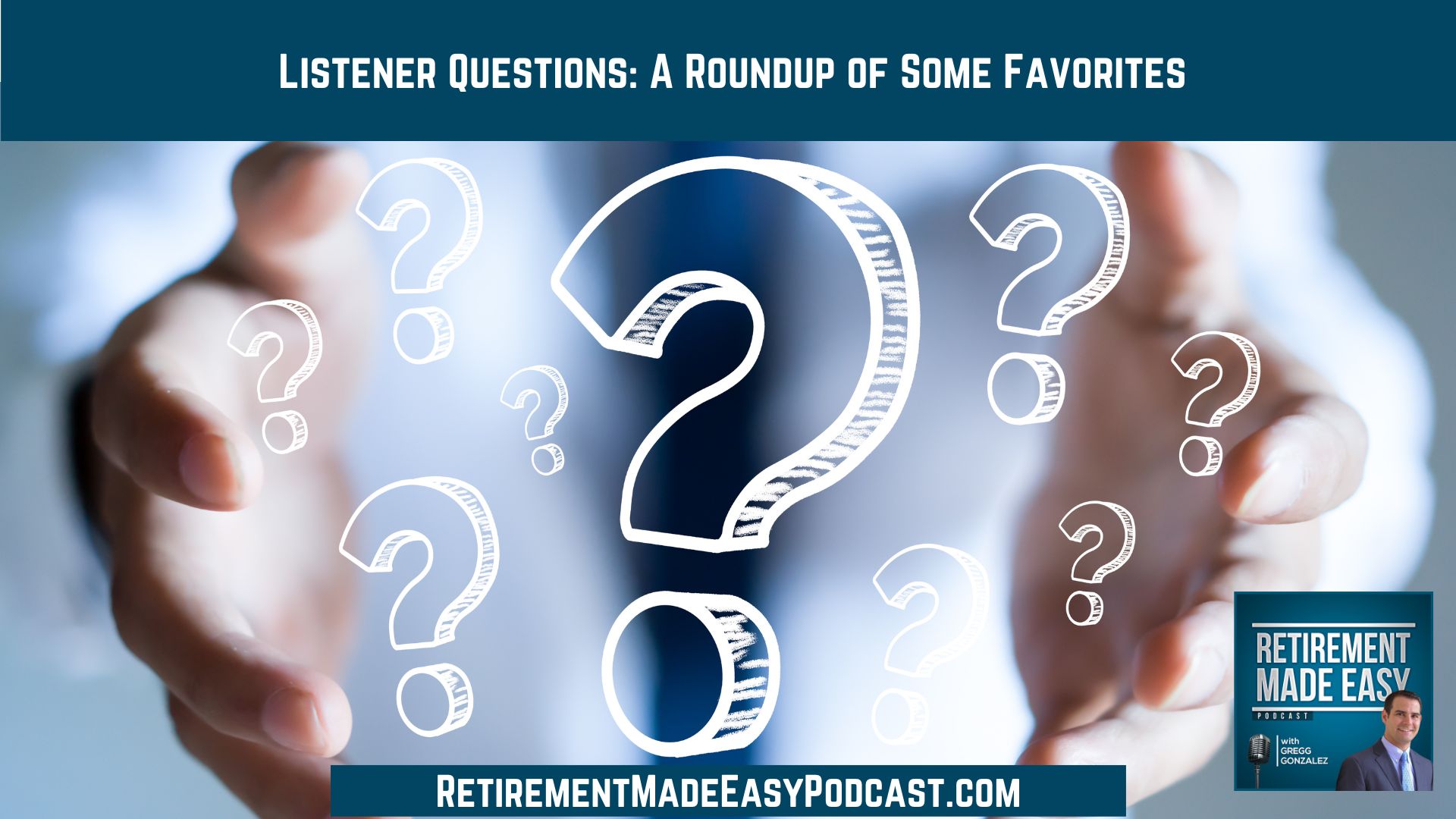
Can you stop or suspend social security? How do inheritances impact your taxes? How do you pay for Medicare Part B if you’re not on social security? In this episode of the Retirement Made Easy podcast, I revisit some of the best questions from 2022 that are still 100% relevant and timely for today. If you want answers to these questions, don’t miss it!
You will want to hear this episode if you are interested in…
- [1:40] Submit questions at RetirementMadeEasyPodcast.com
- [3:02] Question #1: Can you stop or suspend social security?
- [6:08] Question #2: Can you do a Roth conversion with an RMD?
- [7:20] Question #3: How do inheritances impact taxes?
- [11:16] Question #4: How do you pay for Medicare part B?
- [14:44] Question #5: Should you buy savings bonds for your emergency fund?
Can you stop or suspend social security?
J retired at 62 and started his social security benefit. However, he’s now considering stopping the benefit. Why? Because he has a part-time employment opportunity where he’d make $30,000 annually. He’s concerned that will reduce his social security benefit. Can he stop his social security?
Once you start your social security benefit, you can only stop it within 12 months. Have 12 months passed? If so, you can’t stop it. If you’re within the 12-month timeframe, you have to contact social security, fill out a form, and pay back the benefits you had already received.
If you’re collecting social security under full retirement age, you can only make up to $19,560. So J would be penalized for making an income of $30,000 per year, $1 per every $2 over the $19,560.
Listener Question #2: Can you do a Roth conversion with an RMD?
Can you do a Roth conversion for $15,000 when you take a required minimum distribution? You can pay the taxes on the $15,000 and put it in a Roth IRA where it can grow tax-free. However, you still need to take another $15,000 as a distribution because Roth conversions do not count toward RMDs.
Listener Question #3: How do inheritances impact taxes?
Tammy inherited accounts from her Mom that totaled $700,000. How will that impact her retirement? Does she have to pay an inheritance tax? Will it change her tax bracket?
The $400,000 IRA that Tammy inherited follows different rules (that changed with the Secure Act). Starting 1/1/2020, you have 10 years to withdraw everything from the IRA. These withdrawals are taxable at the Federal level (some states will tax the withdrawals and others will not). You won’t pay an early withdrawal penalty.
Listener Question #4: How do you pay for Medicare part B?
How do you pay for Medicare part B premiums if you’re not collecting social security yet? For those of you that don’t know, Medicare Part B premiums are income based and usually deducted from your social security. In 2022, it will be $170.10 (14.5% higher). How should John pay it?
If you have an HSA, build that up before retiring and use it to pay for Medicare Part B premiums, dental expenses, vision expenses, deductibles, etc. If you have access to an HSA, take advantage of it.
How do you cover the 20% that Medicare doesn’t cover? Should you buy savings bonds to fund your emergency fund? Listen to hear my thoughts!
Resources & People Mentioned
- 3 Steps to Retirement Planning
- Submit questions at RetirementMadeEasyPodcast.com
- Schedule a 30-minute coaching session
Connect With Gregg Gonzalez
- Email at: Gregg@RetireSTL.com
- Podcast: https://RetirementMadeEasyPodcast.com
- Website: https://StLouisFinancialAdvisor.com
- Follow Gregg on LinkedIn
- Follow Gregg on Facebook
- Follow Gregg on YouTube



